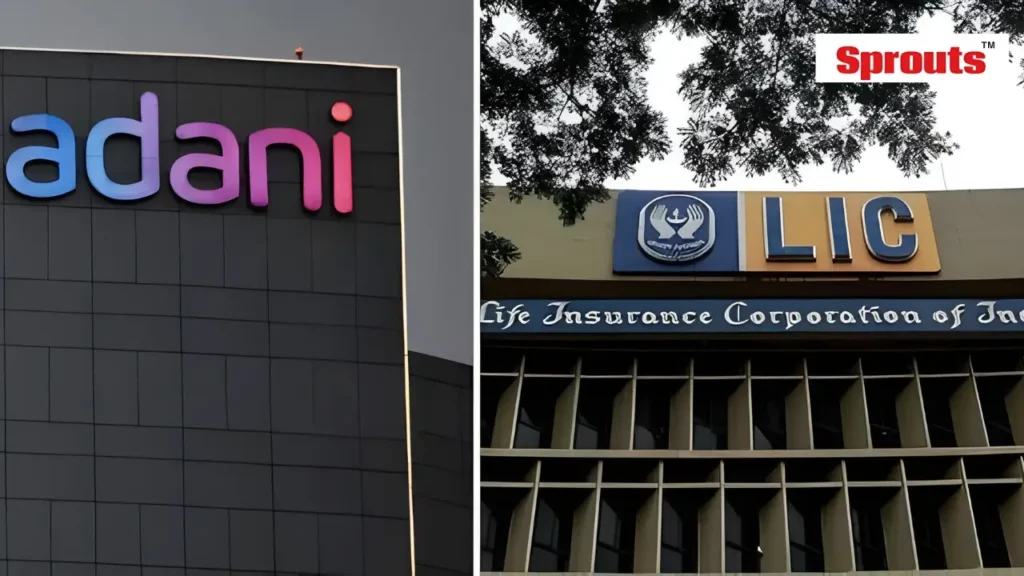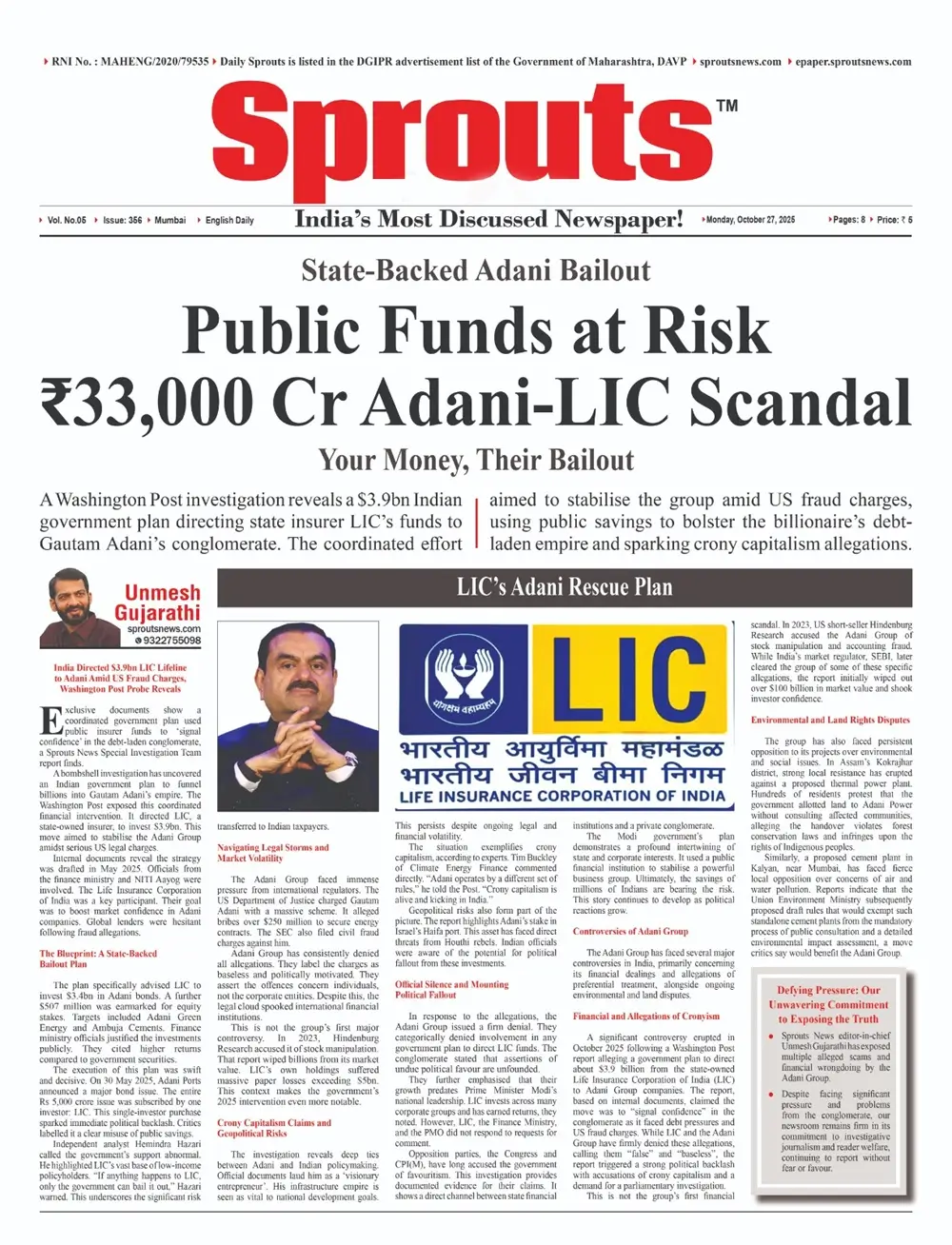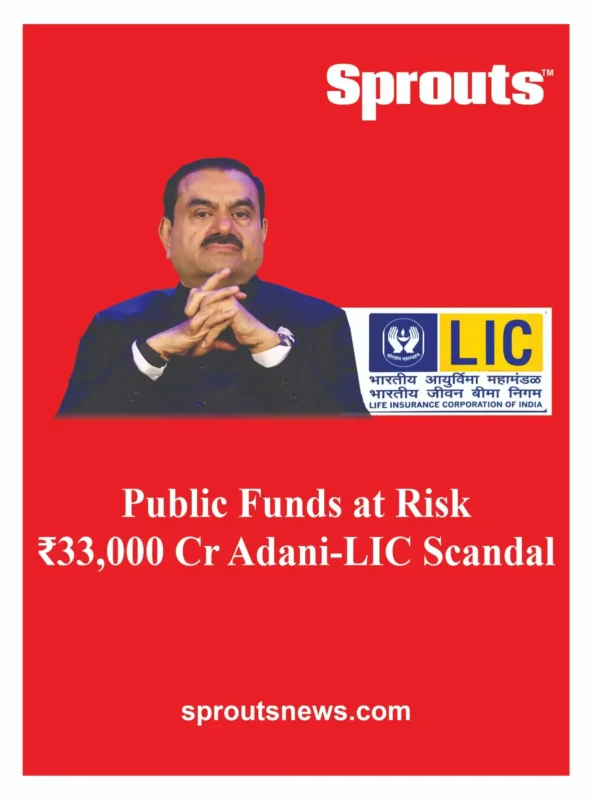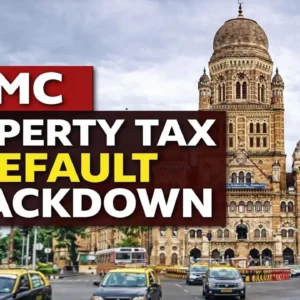India Directed $3.9bn LIC Lifeline to Adani Amid US Fraud Charges, Washington Post Probe Reveals
• Washington Post Exposes Modi Government’s $3.9bn LIC Plan to Rescue Adani Group
• From Plan to Action: The Rs 5,000 Crore Bond Purchase
• From Hindenburg to the DOJ: A History of Controversy
A Washington Post investigation has uncovered a $3.9bn government-directed LIC investment to stabilize Gautam Adani’s conglomerate amid US fraud charges. Internal documents show the plan was coordinated by senior officials in the Finance Ministry and NITI Aayog to “signal market confidence” using public insurer funds. The move has reignited debates on crony capitalism, transparency, and state intervention in corporate bailouts during international legal scrutiny. The coordinated effort aimed to stabilize the group amid US fraud charges, using public savings to bolster the billionaire’s debt-laden empire and sparking crony capitalism allegations.
- India Directed $3.9bn LIC Lifeline to Adani Amid US Fraud Charges, Washington Post Probe Reveals
- • Washington Post Exposes Modi Government’s $3.9bn LIC Plan to Rescue Adani Group
- • From Plan to Action: The Rs 5,000 Crore Bond Purchase
- • From Hindenburg to the DOJ: A History of Controversy
- India Directed $3.9bn LIC Lifeline to Adani Amid US Fraud Charges, Washington Post Probe Reveals
- The Blueprint: A State-Backed Bailout Plan
- Navigating Legal Storms and Market Volatility
- Crony Capitalism Claims and Geopolitical Risks
- Official Silence and Mounting Political Fallout
- Controversies of Adani Group:
Click Here To Download the News Attachment
India Directed $3.9bn LIC Lifeline to Adani Amid US Fraud Charges, Washington Post Probe Reveals
Exclusive documents show a coordinated government plan used public insurer funds to ‘signal confidence’ in the debt-laden conglomerate, a Sprouts News Special Investigation Team report finds.
A bombshell investigation has uncovered an Indian government plan to funnel billions into Gautam Adani’s empire. The Washington Post exposed this coordinated financial intervention. It directed LIC, a state-owned insurer, to invest $3.9bn. This move aimed to stabilise the Adani Group amidst serious US legal charges.
Internal documents reveal the strategy was drafted in May 2025. Officials from the finance ministry and NITI Aayog were involved. The Life Insurance Corporation of India was a key participant. Their goal was to boost market confidence in Adani companies. Global lenders were hesitant following fraud allegations.
The Blueprint: A State-Backed Bailout Plan
The plan specifically advised LIC to invest $3.4bn in Adani bonds. A further $507 million was earmarked for equity stakes. Targets included Adani Green Energy and Ambuja Cements. Finance ministry officials justified the investments publicly. They cited higher returns compared to government securities.
The execution of this plan was swift and decisive. On 30 May 2025, Adani Ports announced a major bond issue. The entire Rs 5,000 crore issue was subscribed by one investor: LIC. This single-investor purchase sparked immediate political backlash. Critics labelled it a clear misuse of public savings.
Independent analyst Hemindra Hazari called the government’s support abnormal. He highlighted LIC’s vast base of low-income policyholders. “If anything happens to LIC, only the government can bail it out,” Hazari warned. This underscores the significant risk transferred to Indian taxpayers.
Also Read: Thane Central Bank Recruitment Scam Exposed by Sprouts SIT.
Navigating Legal Storms and Market Volatility
The Adani Group faced immense pressure from international regulators. The US Department of Justice charged Gautam Adani with a massive scheme. It alleged bribes over $250 million to secure energy contracts. The SEC also filed civil fraud charges against him.
Adani Group has consistently denied all allegations. They label the charges as baseless and politically motivated. They assert the offences concern individuals, not the corporate entities. Despite this, the legal cloud spooked international financial institutions.
This is not the group’s first major controversy. In 2023, Hindenburg Research accused it of stock manipulation. That report wiped billions from its market value. LIC’s own holdings suffered massive paper losses exceeding $5bn. This context makes the government’s 2025 intervention even more notable.
Crony Capitalism Claims and Geopolitical Risks
The investigation reveals deep ties between Adani and Indian policymaking. Official documents laud him as a ‘visionary entrepreneur’. His infrastructure empire is seen as vital to national development goals. This persists despite ongoing legal and financial volatility.
The situation exemplifies crony capitalism, according to experts. Tim Buckley of Climate Energy Finance commented directly. “Adani operates by a different set of rules,” he told the Post. “Crony capitalism is alive and kicking in India.”
Geopolitical risks also form part of the picture. The report highlights Adani’s stake in Israel’s Haifa port. This asset has faced direct threats from Houthi rebels. Indian officials were aware of the potential for political fallout from these investments.
Official Silence and Mounting Political Fallout
In response to the allegations, the Adani Group issued a firm denial. They categorically denied involvement in any government plan to direct LIC funds. The conglomerate stated that assertions of undue political favour are unfounded.
They further emphasised that their growth predates Prime Minister Modi’s national leadership. LIC invests across many corporate groups and has earned returns, they noted. However, LIC, the Finance Ministry, and the PMO did not respond to requests for comment.
Opposition parties, the Congress and CPI(M), have long accused the government of favouritism. This investigation provides documented evidence for their claims. It shows a direct channel between state financial institutions and a private conglomerate.
The Modi government’s plan demonstrates a profound intertwining of state and corporate interests. It used a public financial institution to stabilise a powerful business group. Ultimately, the savings of millions of Indians are bearing the risk. This story continues to develop as political reactions grow.
Controversies of Adani Group:
The Adani Group has faced several major controversies in India, primarily concerning its financial dealings and allegations of preferential treatment, alongside ongoing environmental and land disputes.
Financial and Allegations of Cronyism
A significant controversy erupted in October 2025 following a Washington Post report alleging a government plan to direct about $3.9 billion from the state-owned Life Insurance Corporation of India (LIC) to Adani Group companies. The report, based on internal documents, claimed the move was to “signal confidence” in the conglomerate as it faced debt pressures and US fraud charges. While LIC and the Adani Group have firmly denied these allegations, calling them “false” and “baseless”, the report triggered a strong political backlash with accusations of crony capitalism and a demand for a parliamentary investigation.
This is not the group’s first financial scandal. In 2023, US short-seller Hindenburg Research accused the Adani Group of stock manipulation and accounting fraud. While India’s market regulator, SEBI, later cleared the group of some of these specific allegations, the report initially wiped out over $100 billion in market value and shook investor confidence.
Environmental and Land Rights Disputes
The group has also faced persistent opposition to its projects over environmental and social issues. In Assam’s Kokrajhar district, strong local resistance has erupted against a proposed thermal power plant. Hundreds of residents protest that the government allotted land to Adani Power without consulting affected communities, alleging the handover violates forest conservation laws and infringes upon the rights of Indigenous peoples.
Similarly, a proposed cement plant in Kalyan, near Mumbai, has faced fierce local opposition over concerns of air and water pollution. Reports indicate that the Union Environment Ministry subsequently proposed draft rules that would exempt such standalone cement plants from the mandatory process of public consultation and a detailed environmental impact assessment, a move critics say would benefit the Adani Group.
Defying Pressure: Our Unwavering Commitment to Exposing the Truth
Sprouts News editor-in-chief Unmesh Gujarathi has exposed multiple alleged scams and financial wrongdoing by the Adani Group. Despite facing significant pressure and problems from the conglomerate, our newsroom remains firm in its commitment to investigative journalism and reader welfare, continuing to report without fear or favour.



















